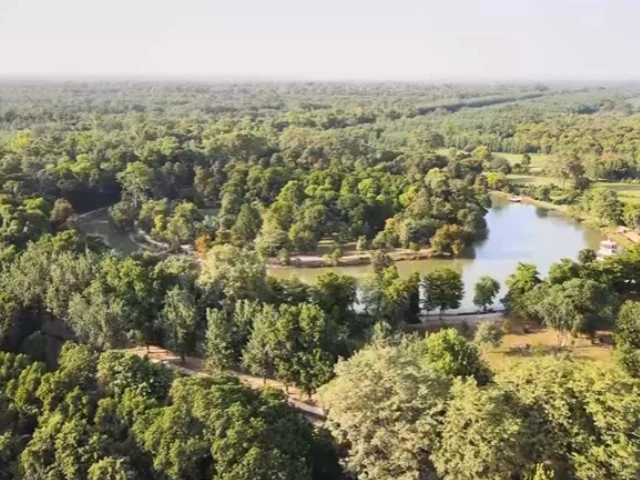Punjab has begun to formulate its long -term forest vision 2050, with the aim of prioritizing forest conservation and ecological balance instead of treating forests only as a wooden source. The initiative seeks to make forests a central pillar to address climate change and strengthening ecological resilience.
To write this vision, the Punjab Forest Department has been associated with the International Union for the Conservation of Nature (IUCN), which organized a two -day planning workshop in LaHore. The event brought together national and international experts, government officials, academics and community representatives to contribute proposals.
Senior Provincial Minister Marriyum Aurangzeb, inaugurated the opening session along with Dr. Satrio Wicaksono de Iucn Asia, American expert Dr. Javed Ahmed, the Secretary of the Punjab forest, Mudassir Riaz Malik, and the representative of the country of Iucn Pakistan, Mahmood Akhtar Cheem.
Experts unanimously warned that without immediate actions, Punjab would continue to face severe climate -related threats, including devastating floods and prolonged droughts. They recommended models such as urban forestry, agroforestry, community plantations and carbon credit forest as viable solutions.
Mahmood Akhtar Cheem by IUCN Pakistan emphasized the role of technology in the expansion of forest coverage. “IUCN is ready to transfer your global experience to Pakistan, and Punjab’s efforts in this direction are commendable,” he said, adding that no forest plan can succeed without participation in the community. In addition, he pointed out that recent Punjab conservation efforts in silviculture and wildlife had produced “beyond expectations.”
He stressed that the Punjab government, under the leadership of the prime minister, is looking for an integral environmental policy.
He stressed initiatives such as the Clean Punjab campaign, plantations units, renewable energy programs, environmental funds and air pollution mitigation measures such as key steps towards a greener province.
The Secretary of the Punjab Forest, Mudassir Riaz Malik, said that although the province covers more than 50 million acres, the forest department controls only 1.65 million acres, of which only 1.25 million acres are forests. “The remaining land is under private property.
Without public participation, the expansion of forest coverage will not be possible, ”he said. He also cited the successful wildlife census and the plant for Pakistan as examples of effective collaboration with IUCN.
Jamal, manager of the Pakistan Green Program, added that a consortium led by IUCN Pakistan is preparing policy investigation that will serve as a basis for Forest Vision 2050.
Environmentalists in the workshop reiterated the ecological benefits of trees, noting that forests reduce flood impacts by joining the ground, recharging groundwater through the absorption of rainwater and mitigating air pollution.
They emphasized the need for urban green belts, agroforestry in agricultural land and plantations directed by the community in rural areas.
The experts also highlighted the economic potential of forest products such as honey, fruits and wood for rural media, while wildlife specialists warned that reduced forests were destroying habitats of endangered species.
The participants concluded that if it was effectively implemented, Forest Vision 2050 could not only expand the Punjab forest coverage, but also to establish the province as a model for climate adaptation and ecological resistance.




